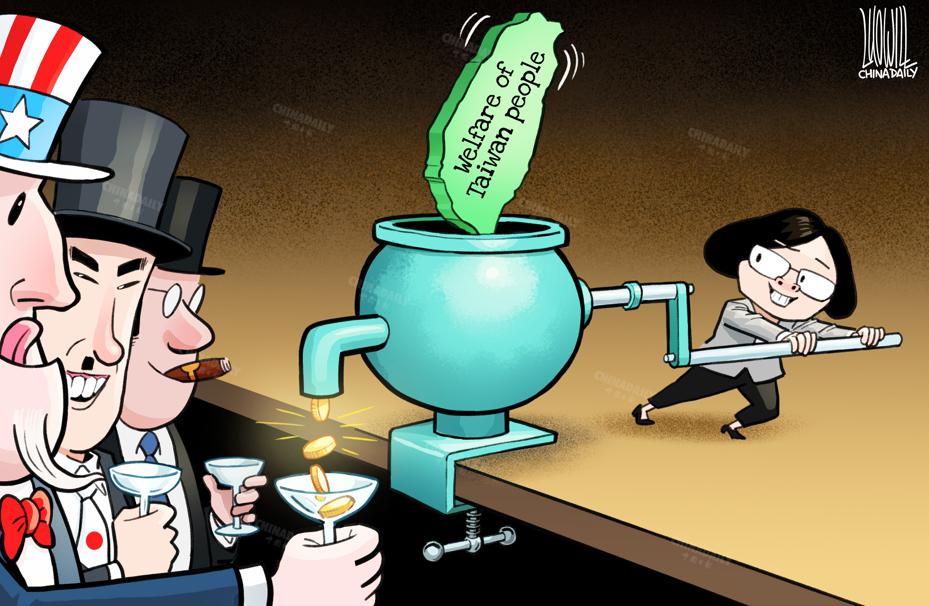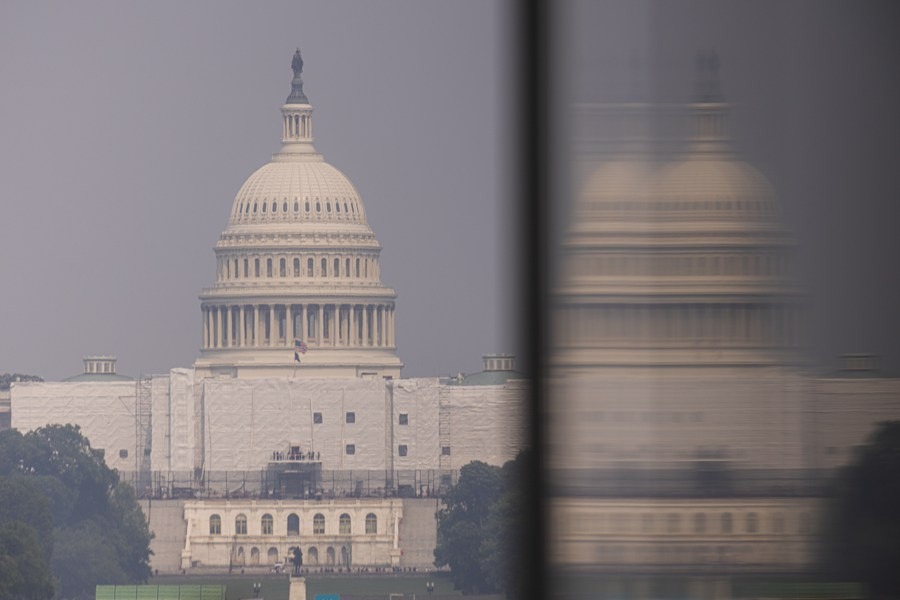Washington plays with fire by selling arms to Taiwan


Washington played with fire again recently by signing another arms deal worth $245 million with Taiwan, a follow-up to its arms sale plan to the inalienable part of China's territory in December 2020.
Washington's flagrant move to advance arms sales to and military ties with the region is firmly opposed by China, as it seriously interferes in China's internal affairs, grossly violates the one-China principle and the provisions of the three China-US joint communiques, and severely undermines China-US relations as well as peace and stability across the Taiwan Strait.
The recent days have witnessed increasing instability and escalating tensions across the Taiwan Strait, the roots of which lie in Taiwan's Democratic Progressive Party authorities' growing military collusion with external forces to seek "Taiwan independence," and in Washington's continuous manipulation of the Taiwan question to suppress China.
Washington's repeated approvals of arms sales to Taiwan represent its habitual and dangerous provocation against China as well as its irresponsible and even hostile attitude towards regional peace and stability, and have sparked widespread concern among the international community.
"To avoid inflaming tensions in the Taiwan Strait, the US needs to halt sales of weapons to Taiwan," Trevor Thrall, senior fellow for Washington-based think tank the Cato Institute, wrote in a commentary published on US newspaper Defense News in August 2021, adding that US arms sales are "sure to inflame tensions between Beijing and Washington, increasing the risk of conflict."
In 1982, China and the United States released the August 17 Communique concerning the issue of US arms sales to Taiwan, in which Washington states that it "intends gradually to reduce its sale of arms to Taiwan." In the following joint communiques released in 2009 and 2011, Beijing and Washington reaffirmed their respect for each other's sovereignty and territorial integrity, and Washington states that it "abides by the principles of the three China-US joint communiques."
Most recently, Washington has on multiple occasions reiterated its adherence to the one-China policy and pledged not to support Taiwan separatist forces in seeking so-called "independence."
However, it has brazenly reneged on its own words. Such inconsistency has seriously tarnished Washington's own political credit and harmed the international reputation of the United States.
Many ordinary people in Taiwan have become well aware of Washington's sinister intentions behind such arms sales: The US politicians in the White House have long been ardent to sell weapons to Taiwan because they hope to use the old cheap trick to contain China's development while profiting hugely by playing the "Taiwan card."
In fact, Washington's arms sales to Taiwan are just one of the many living proofs of its scheme to make a wartime fortune by inciting confrontations. According to a report published Monday by Stockholm International Peace Research Institute, against the backdrop of an overall decline in the global arms trade, US weapons exports rose 14 percent in 2017-2021 compared to the previous five-year period.
The Taiwan question is the most important and sensitive issue in China-US relations and concerns China's core interests. No provocation or threat would make China budge an inch.
It is high time that Washington recognized the sensitivity and peril of its arms sales to Taiwan, stopped playing the "Taiwan card," avoided sending more wrong signals to the "Taiwan independence" separatists, and started to handle Taiwan-related issues prudently.

































